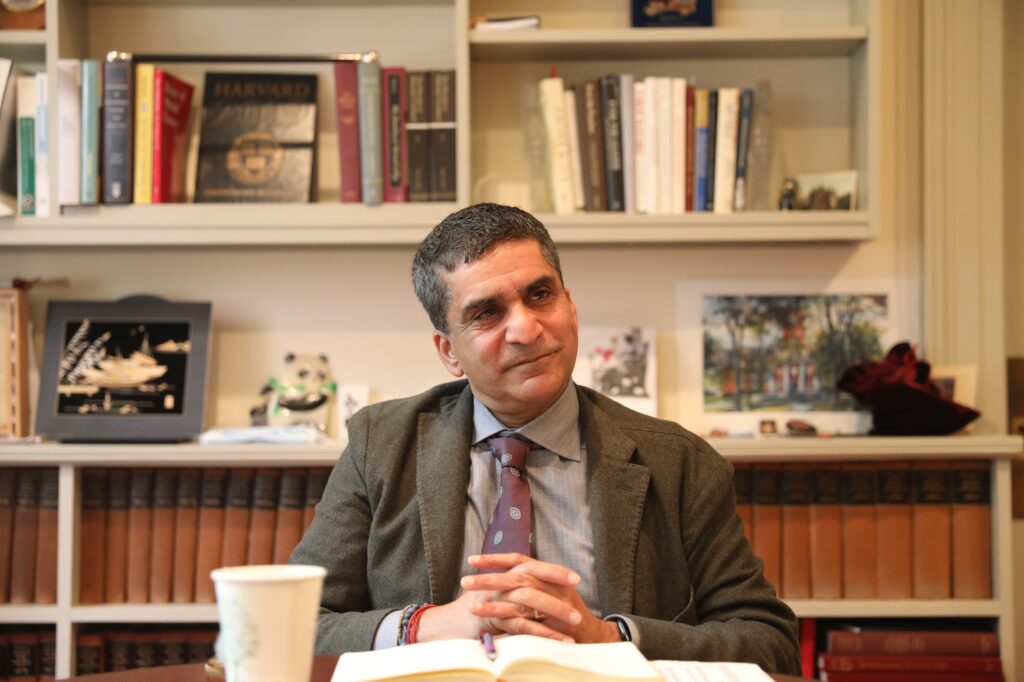Undergraduate student government leaders from all eight Ivy League schools and the Massachusetts Institute of Technology came together to discuss student leadership efforts on campus during a virtual event Sunday.
This year's Ivy+ Student Government Conference is a new event sponsored by the Harvard Undergraduate Association, but it follows similar conferences in the past that brought together student leaders from across the university.
Harvard University Dean Rakesh Khurana gave a welcome speech before student government leaders discussed initiatives at the school, including the Dartmouth Sleep Project and ideas to increase student civic engagement.
Khurana said deans from Ivy+ schools held a similar meeting last week to discuss ways to “strengthen the legitimacy” of their institutions. He added that one of the most important roles of student government is to share student body concerns with university leadership.
“[Student government leaders] Please help us become better leaders at the collegiate level by making sure we listen to what is actually happening on the ground and not just what people are telling us.” said Khurana.
During several keynote speeches, student government leaders agreed that the council's main focus is increasing student influence in university decisions.
Chukwuka Odigbo, a Dartmouth junior and member of the student government, said the Dartmouth student government conducted a “Student Affairs Survey” in the fall. The study surveyed the student body on topics such as on-campus dining and the school's consideration of eliminating its current housing system.
While DSG also holds office hours, focus groups and town halls to gather qualitative responses, Odigbo said it is equally important to quantify student opinions through surveys.
“It's useful to see how students' support for certain things increases or decreases over time,” he said.
Odigbo said DSG offered students who completed the survey a $5 Amazon gift card as an incentive, resulting in a response rate of 25 to 35 percent.
In a separate presentation, Flora Meng, president of the Cornell University Student Council, discussed a resolution authored by a group encouraging Cornell University to “disengage from systematic violence against civilians in Gaza.”
“There may be strong opposition from school boards to this resolution, especially the language targeting issues related to Israel,” Meng said.
“But at the same time, the student body sponsoring this resolution comes from a diverse range of backgrounds, including students from Palestine as well as Jewish students, so this may not be a completely black and white answer. “Okay,” she said.
Meng said the resolution was not passed due to concerns that the proposal would promote anti-Semitism on Cornell's campus, and that Congress would “conduct a more comprehensive review” of environmental and environmental issues. A social and governance committee will be established, he said.
After the event, HUA Co-President Shikoh M. Hirabayashi ’24 said the event was a “huge success” and praised the exchange of ideas.
“I think the biggest takeaway is learning about different initiatives that can be implemented in your school,” he said.
Still, Hirabayashi said HUA's vision for future student government conferences includes holding conferences in person and on a large scale.
“Now that we have completed this and we have some momentum, we would like to see future meetings held in person, perhaps on an annual or semester basis,” he said. “I think it would be more rewarding if people could meet in person and become friends over a day or he spent two days doing it.”
—Staff writer Cam N. Srivastava can be reached at cam.srivastava@thecrimson.com. X Follow him at @camsrivastava.
—Staff writer William Y. Tan can be reached at william.tan@thecrimson.com. X Follow him at @william_y_tan.


